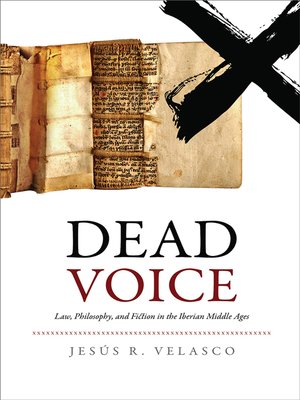Dead Voice
ebook ∣ Law, Philosophy, and Fiction in the Iberian Middle Ages · The Middle Ages Series
By Jesús D. Rodríguez-Velasco

Sign up to save your library
With an OverDrive account, you can save your favorite libraries for at-a-glance information about availability. Find out more about OverDrive accounts.
Find this title in Libby, the library reading app by OverDrive.



Search for a digital library with this title
Title found at these libraries:
| Library Name | Distance |
|---|---|
| Loading... |
An exploration of the thirteenth-century law code known as Siete Partidas
Conceived and promulgated by Alfonso X, King of Castile and León (r. 1252-1282), and created by a workshop of lawyers, legal scholars, and others, the set of books known as the Siete Partidas is both a work of legal theory and a legislative document designed to offer practical guidelines for the rendering of legal decisions and the management of good governance. Yet for all its practical reach, which extended over centuries and as far as the Spanish New World, it is an unusual text, argues Jesús R. Velasco, one that introduces canon and ecclesiastical law in the vernacular for explicitly secular purposes, that embraces intellectual disciplines and fictional techniques that normally lie outside legal science, and that cultivates rather than shuns perplexity.
In Dead Voice, Velasco analyzes the process of the Siete Partidas's codification and the ways in which different cultural, religious, and legal traditions that existed on the Iberian Peninsula during the Middle Ages were combined in its innovative construction. In particular, he pays special attention to the concept of "dead voice," the art of writing the law in the vernacular of its clients as well as in the language of legal professionals. He offers an integrated reading of the Siete Partidas, exploring such matters as the production, transmission, and control of the material text; the collaboration between sovereignty and jurisdiction to define the environment where law applies; a rare legislation of friendship; and the use of legislation to characterize the people as "the soul of the kingdom," endowed with the responsibility of judging the stability of the political space.
Presenting case studies beyond the Siete Partidas that demonstrate the incorporation of philosophical and fictional elements in the construction of law, Velasco reveals the legal processes that configured novel definitions of a subject and a people.







